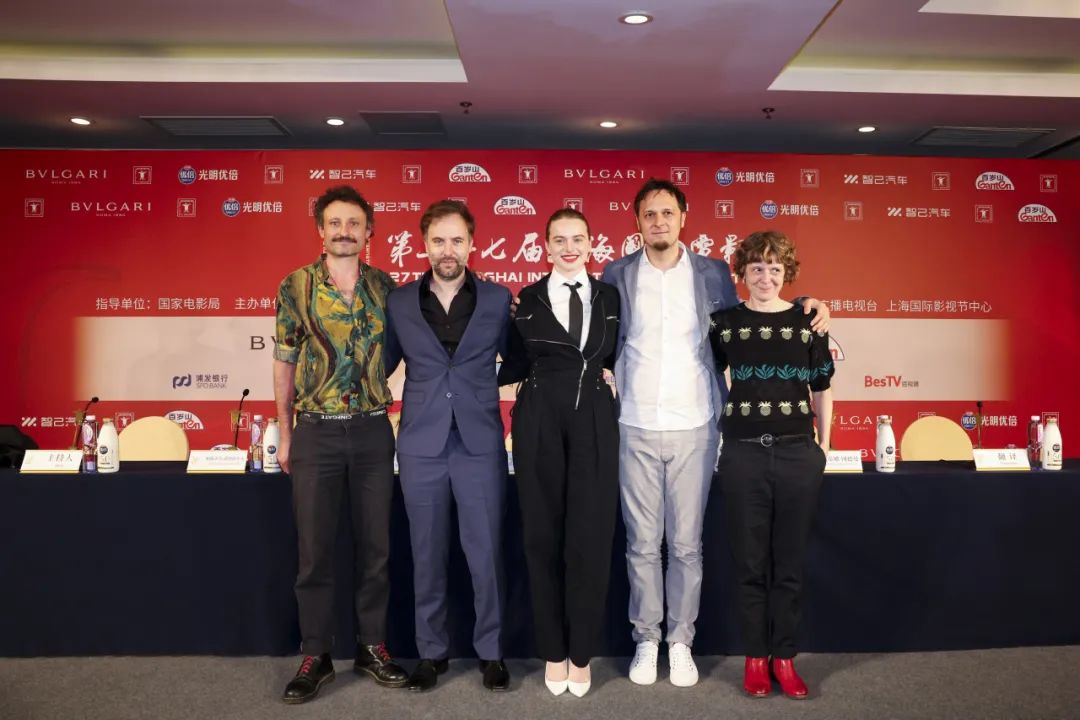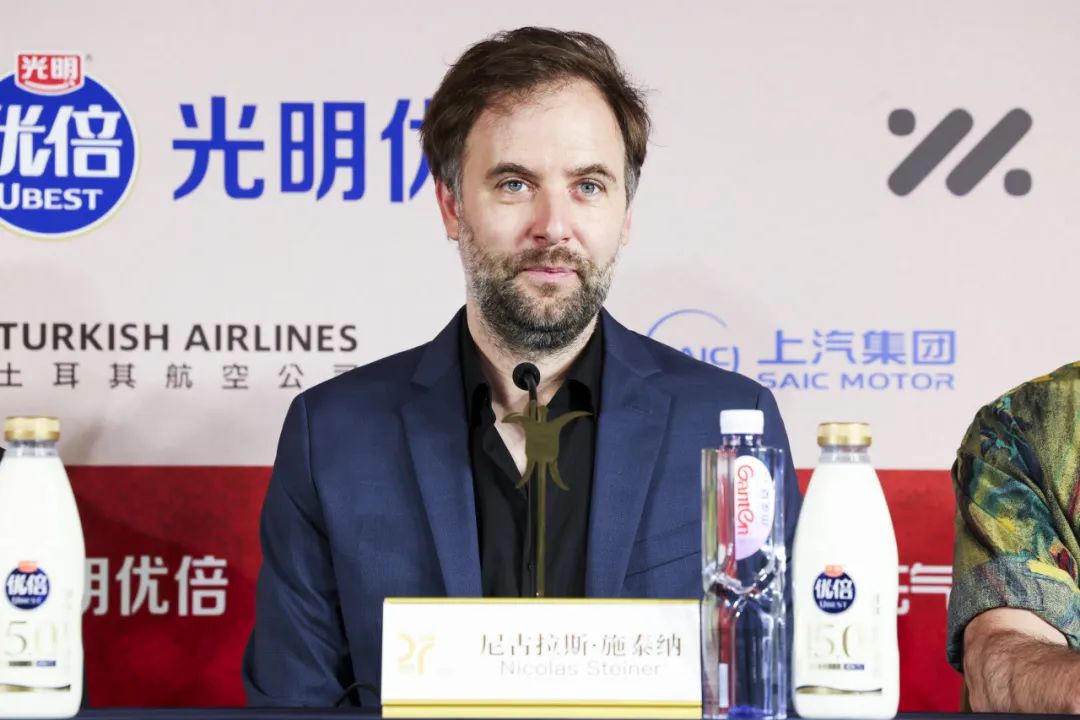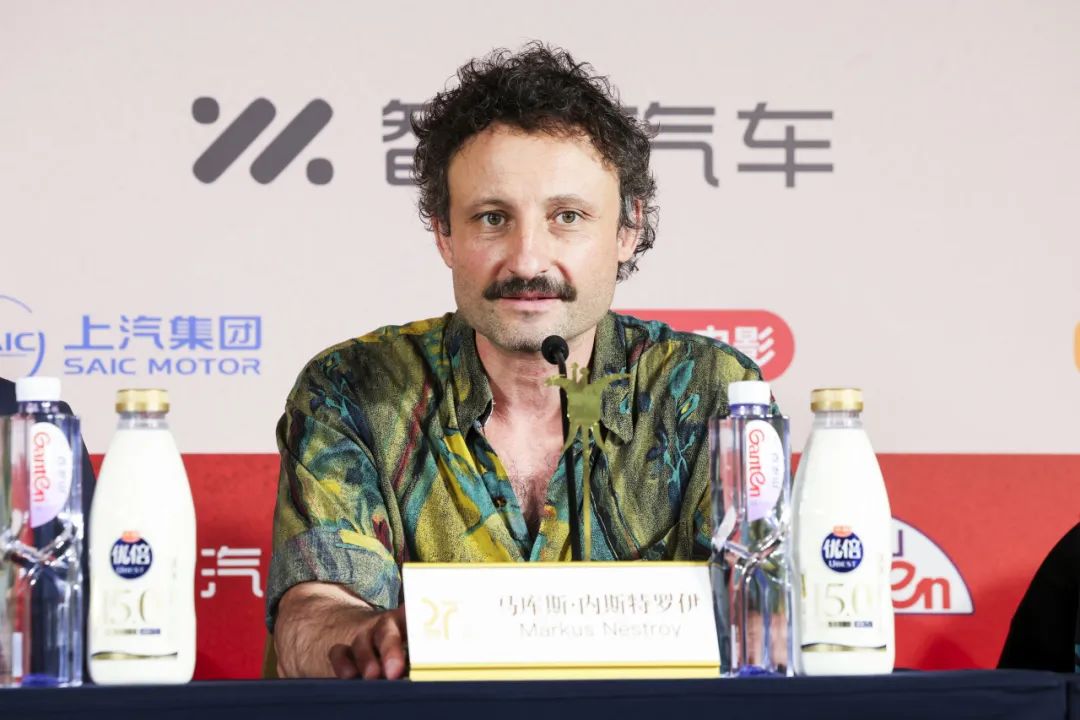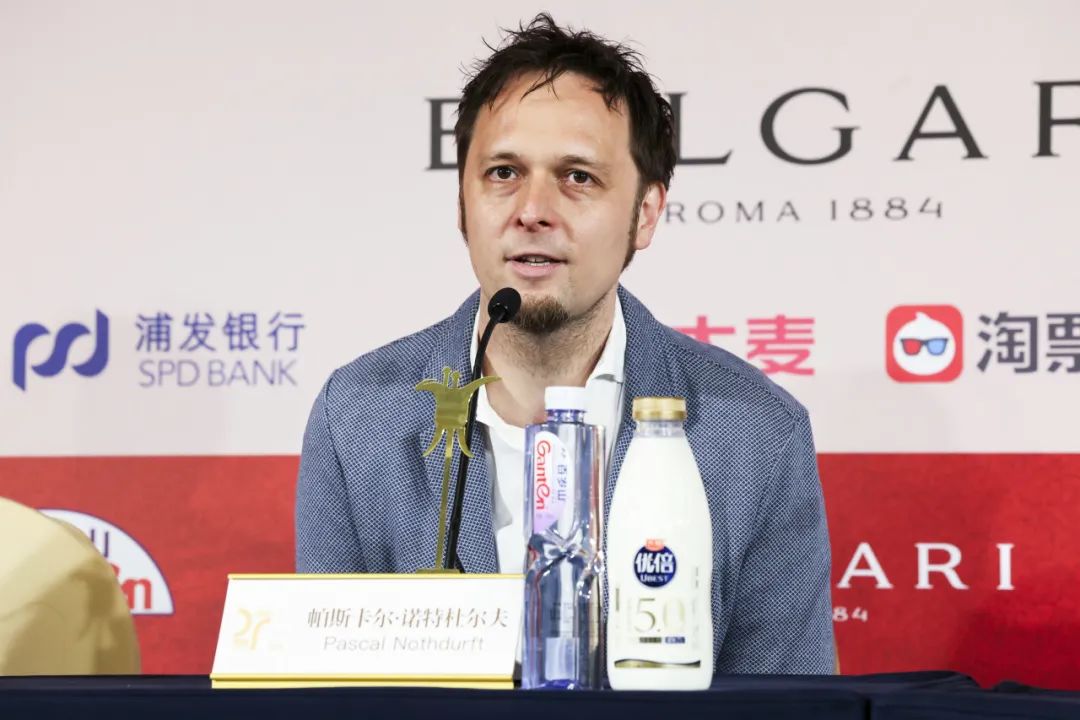Golden Goblet Awards Main Competition Film | You Believe in Angels, Mr. Drowak?: A Magical Journey of Redemption through Words
On June 20, the team behind You Believe in Angels, Mr. Drowak?, a film selected for the Main Competition at the 27th Shanghai International Film Festival, held a press event. Co-produced by Germany and Switzerland, the film marks Swiss director Nicolas Steiner’s debut narrative feature. It continues his poetic-realism approach and formal experimentation, characterized by the precision and restraint rooted in his documentary background.

Director Nicolas Steiner appeared at the event with lead actress Luna Wedler, cinematographer Markus Nestroy, screenwriter Bettina Gundermann, and producer Pascal Nothdurft to share stories about the film’s creation.
A Magical Realist Tragicomedy
You Believe in Angels, Mr. Drowak? tells a magical realist tragicomedy. Hugo Drowak, a disillusioned old man, lives reclusively in a post-apocalyptic fortress built from discarded wine bottles, battling inner demons with a typewriter. When social worker Lena Jakobi breaks into his crumbling world, a word-driven challenge begins. Drowak’s writing flows with Proustian memories and confrontations with literalized inner darkness. Lena fights to pull him back from the brink and to safeguard the goodness within herself.
This is screenwriter Bettina Gundermann’s first screenplay. She recalls the image of Mr. Drowak appearing while listening to music: “It felt like I was going on a journey with him. I didn’t know where it would end, but I was compelled to try.” Gradually, the character took shape - a man isolated from the world, a nihilist and misanthrope.

Yet Gundermann insists that despite his status as a societal outcast, Drowak should not be reduced to a simple failure. “He should be full of color and stories. Even someone like Lena - so vibrant on the outside - carries her own deep experiences.”
The film boasts a powerful cast: Karl Markovics, Luna Wedler, and Lars Eidinger, three prominent figures in European cinema, collaborate on screen for the first time, infusing the film with emotional depth and compelling performances.

To portray the pivotal role of social worker Lena Jakobi, lead actress Luna Wedler devoted a great deal of effort to immersing herself in the character. “I walked through the city streets, interacted with all kinds of people, and tried to discover Lena’s habits,” she explained. “She’s an especially expressive character - warm-hearted, full of inner warmth, very talkative, and always observing her surroundings.” To get closer to the role, Luna Wedler even practiced dancing, puppetry, and crossing her eyes before filming.

Director Nicolas Steiner considers Karl Markovics one of the most underrated actors in the German-speaking film world, with remarkable versatility. “If you watch the way he expresses emotion through his facial movements on camera and his overall performance - he’s truly outstanding. This role is also a perfect match for him, as the character is deeply layered and has experienced many ups and downs.”
As for Lars Eidinger, the director was full of praise: “He’s not only a brilliant actor - he lifts the entire cast with him. He doesn’t see other actors as competitors but as teammates.”
The Fusion and Interweaving of Two Worlds
In terms of visual language, You Believe in Angels, Mr. Drowak? is full of thoughtful cinematic design. The film uses both black-and-white and color palettes to distinguish between different timelines and realities. Director Nicolas Steiner revealed that this approach stems from his previous experience in documentary filmmaking - he finds the raw power of black-and-white visuals especially expressive. Moreover, the dual-color system brings a stark contrast to both the characters and the narrative: “Drowak’s past is steeped in a black-and-white tone, as if there’s no gray area in between. But the arrival of the girl slowly begins to change his world.”

Cinematographer Markus Nestroy shared that the film was designed to portray not only an external and internal world, but also the contrasting realities of the two lead characters. “For instance, one side uses dimmer, more static shots, creating a muted atmosphere. On the other side, when we depict the vibrant world of the female protagonist, we use warm, rich colors. However, these two worlds are not strictly divided - they constantly fuse and intersect.”

Producer Pascal Nothdurft said the creative team poured nine years of effort and passion into completing the film, and they are especially eager to receive recognition on such a prestigious platform as the Shanghai International Film Festival.
“We wanted to explore a fundamental question - what is the world truly lacking?”said producer Pascal Nothdurft. “Confucius spoke of Ren (benevolence), and I believe this Chinese character holds the answer. It means we should empathize with others, feel their suffering, and help them out of hardship.” Nothdurft believes the world needs Ren, and sees it as a meaningful point of connection between Chinese and German cultures - and more broadly, between Eastern and Western philosophies.







